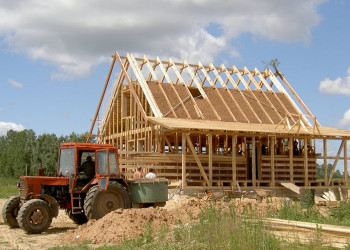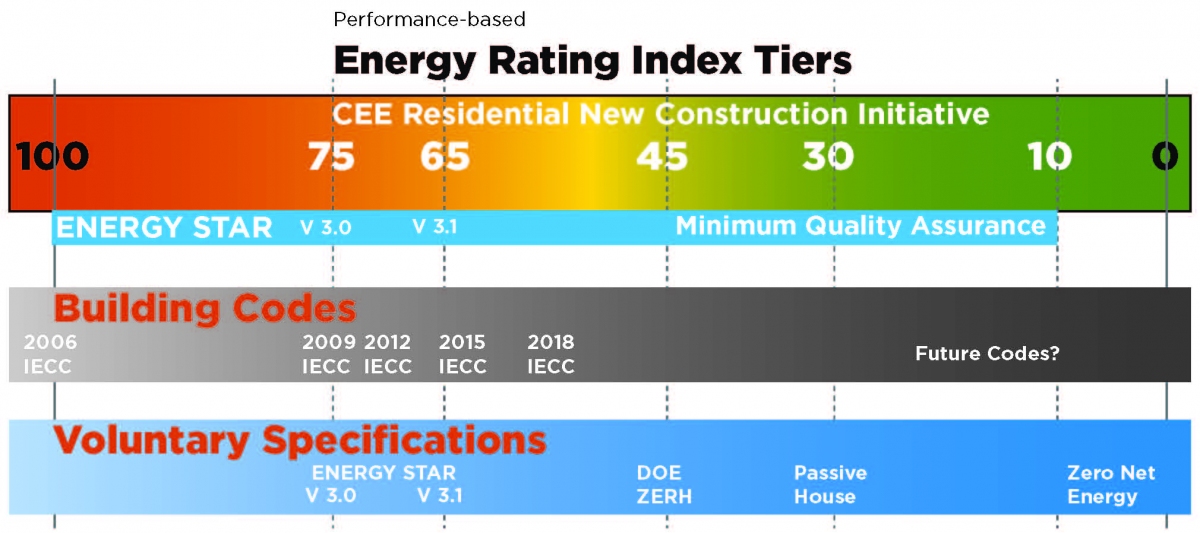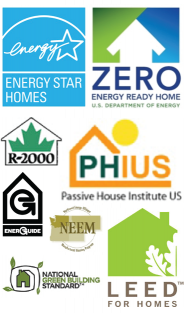

FEBRUARY 22, 2018

With over one million new homes built annually since 2014, residential new construction represents a significant opportunity to achieve new levels of energy savings and transform the building practices across the country. The new CEESM Residential New Construction Initiative and specification outline an effective and coherent strategy to achieve these savings through a comprehensive one-size-fits-all approach. The platform the Initiative establishes allows all members to promote options that drive builders to meet higher levels of performance and ultimately work to transform the market towards super efficient construction practices.
A house built to the CEE Base Tier requirements represents a 25 percent increase in efficiency over a baseline home built to meet the 2006 IECC. One built to Tier 5 is 90 percent more efficient. The middle tier translates into savings for the homeowner of typically $500-$1,000 annually. In terms of source energy based on national averages, this is equivalent to an annual reduction of energy use anywhere between 40 and 140 million Btu.
By collaborating at a national scale to deploy the Initiative across the new construction industry, CEE members will help achieve:
The CEE Initiative includes the CEE Residential New Construction Specification, which promotes increasingly stringent Energy Rating Index scores as its founding principle, with minimum quality assurance prerequisites to strengthen and safeguard the incremental energy gains. The 2006 IECC building code serves as a common baseline, allowing the calculation of savings in a uniform fashion for individual cost-effectiveness requirements. This underlying concept may be modified or adapted in several ways to address the needs and goals of an individual program. Specific tiers are set to coordinate with levels promoted by other voluntary platforms already in the market.


Members believe a tiered specification based on performance metrics will help drive industry to adopt increasingly efficient new construction practices, support the development and adoption of future building codes that align with program goals, and promote increased stability in a traditionally fragmented market of energy efficiency targets. To date, there has been a patchwork of utility, state, and federal offerings aimed at increasing the efficiency of new homes beyond existing building codes. Since builders tend to serve multiple jurisdictions, this variance in efficiency standards has often made it difficult for programs to encourage builders to climb the efficiency ladder towards zero net energy. The CEE Initiative unifies the currently fragmented market by defining common national objectives and performance metrics, creating a foundation from which members can work collaboratively to transform the landscape for newly built homes.
By fostering greater stability and reliability in the new homes market, the Initiative is designed to increase the number of super efficient homes built across North America and help transform the new construction industry to deliver consistently high performing houses. Any CEE member interested in promoting a program based on performance (as opposed to a prescriptive menu of individual measure upgrades) can adopt this specification, as it is both comprehensive in scope and flexible in practice.
To learn more, contact CEE.
About CEE
CEE is an award-winning consortium of efficiency program administrators from the United States and Canada. Members work to unify program approaches across jurisdictions to increase the success of efficiency in markets. By joining forces at CEE, individual electric and gas efficiency programs are able to partner not only with each other, but also with other industries, trade associations, and government agencies. Working together, administrators leverage the effect of their ratepayer funding, exchange information on successful practices and, by doing so, achieve greater energy efficiency for the public good.